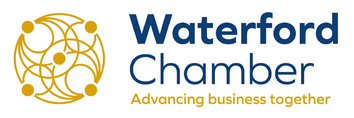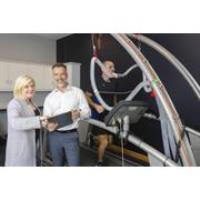
Expanding life science companies, academics, science bodies and industry leaders across the south east have teamed up to showcase how relevant all things science are in today’s world, to promote rewarding and exciting careers in the sector and address acute skilled labour shortages in the region which have been exacerbated since the pandemic.
The perils and benefits of artificial intelligence, how we can all help combat coastal erosion and the critical role social engagement plays in our mental wellbeing are among dozens of practical, pragmatic and fascinating topics to be explored and debated throughout the South East Science Festival.
The Festival comes as latest data from the South East Regional Skills Forum shows acute shortages in the 12,600-strong Life Science sector in the region for graduates with skills in Good Manufacturing Practice (GMP); Advanced Scientific Techniques – a range of disciplines at post graduate level; LEAN & Six Sigma & Operational Excellence; Project Management, Automation and more.
The free programme of over 50 events for adults, families, students and the wider public runs throughout Waterford city and county, Clonmel and Carrick on Suir in Tipperary and across Carlow from November 9 to 16.
The South East Science Festival is run by CALMAST in the South East Technological University (SETU)) with support from Science Foundation Ireland, Waterford City & County Council, Tipperary Council and local industries such as MSD, WEST Pharma, Bausch and Lomb, Sanofi, Abbott and Haleon. For information on all of the South East Science Festival events, log on to www.calmast.ie
‘Human and What it means to be Human’ is the theme of this year’s Science Week programme and events on the South East festival schedule includes invaluable tips and insights into how to increase your ‘healthier life span’ and optimise wellbeing from renowned Waterford-based medic, Dr Mark Rowe, at SETU .
The important role of science in everyday life and in everything from skilful circus tricks to crafting patterns and our mental wellbeing will be unveiled to captive audiences ranging from primary school children to adult groups in schools, libraries, theatres, community hubs and more.
It’s the 26th year of the Festival, CALMAST’s Dr Sheila Donegan, said, adding that the South East Science Festival programme has evolved over the years to meet advances in Science, Technology, Engineering and Maths and offer the general public an insight in pressing areas such as artificial intelligence, healthy ageing and general wellbeing.
“People think of Science Week and they automatically think that everything is focused on schools and on children. South East Science Festival has something for everyone. Whether you’re curious about what makes whisky taste different, want to know more about combating coastal erosion, learn more about our solar system, get advice on ageing, our events show just how relevant the scientific principles of physics, chemistry and biology are in our everyday lives.
“The South East has become a magnet for science, technology and pharmaceutical firms. The growing sector offers great job prospects for graduates with science-related skills and a world of opportunities, rewarding salaries and a chance to travel the world. We want to showcase how exciting and wonderful science is to all age cohorts, all groups and further boost the take-up of STEM-related programmes in SETU and other universities.
“Our Festival has grown over the past 25 years and have evolved with the times. We are encouraging anyone with a spirit of adventure and who is curious about the world around us to have a look at the programme, book their free place now. Wherever you live in the South East, there is something on your doorstep and we’d love to have you along,” she said.
The action-packed programme includes a host of engaging and fun events, quizzes and competitions for primary and secondary school audiences and a family Sunday in Theatre Royal Waterford on Sunday November 12th.
This year’s South East Science Festival also has a very serious and solutions-driven agenda. Discussion and debate will take place in key areas such as tackling coastal erosion with Copper Coast geologist, Robbie Galvin, and the science behind networking at a Networking Ireland event at Faithlegg House Hotel.
Latest data from the South East Regional Skills Forum complied from feedback from industry, industry clusters/associations and data available from SOLAS, shows the rate of staff turnover / churn in Life Science companies in the region has accelerated since the pandemic. Given the tight labour market, in addition to skills and training needs, some sectors are now experiencing significant labour shortages.
The Life Sciences sector in the South East employs 12,600 people. This sector includes pharmaceutical and medical device manufacturing predominantly comprised large multi-national companies. The largest 10 pharmaceutical companies employ 5,200 staff and the largest 10 medical device manufacturers employ 6,600 staff in the South East. This sector has an ongoing requirement for science and engineering professionals and associate professionals as well as semi-skilled operatives / technicians.
Skills shortages and a need to upskill staff have been identified in Good Manufacturing Practice (GMP); Advanced Scientific Techniques – a range of disciplines at post graduate level; LEAN & Six Sigma & Operational Excellence; Project Management, Automation as well as Quality Control & Quality Assurance, Regulatory Affairs; Digitisation & Data Analytics for process improvement and Leadership and Management Development.
Roles in demand within the region include Manufacturing Engineering; Scientists – microbiology & chemistry; Automation Engineers; Process Engineer & Technicians; Laboratory Technicians; Quality Control & Quality Assurance; Regulatory Affairs and Skilled Production Operatives.



